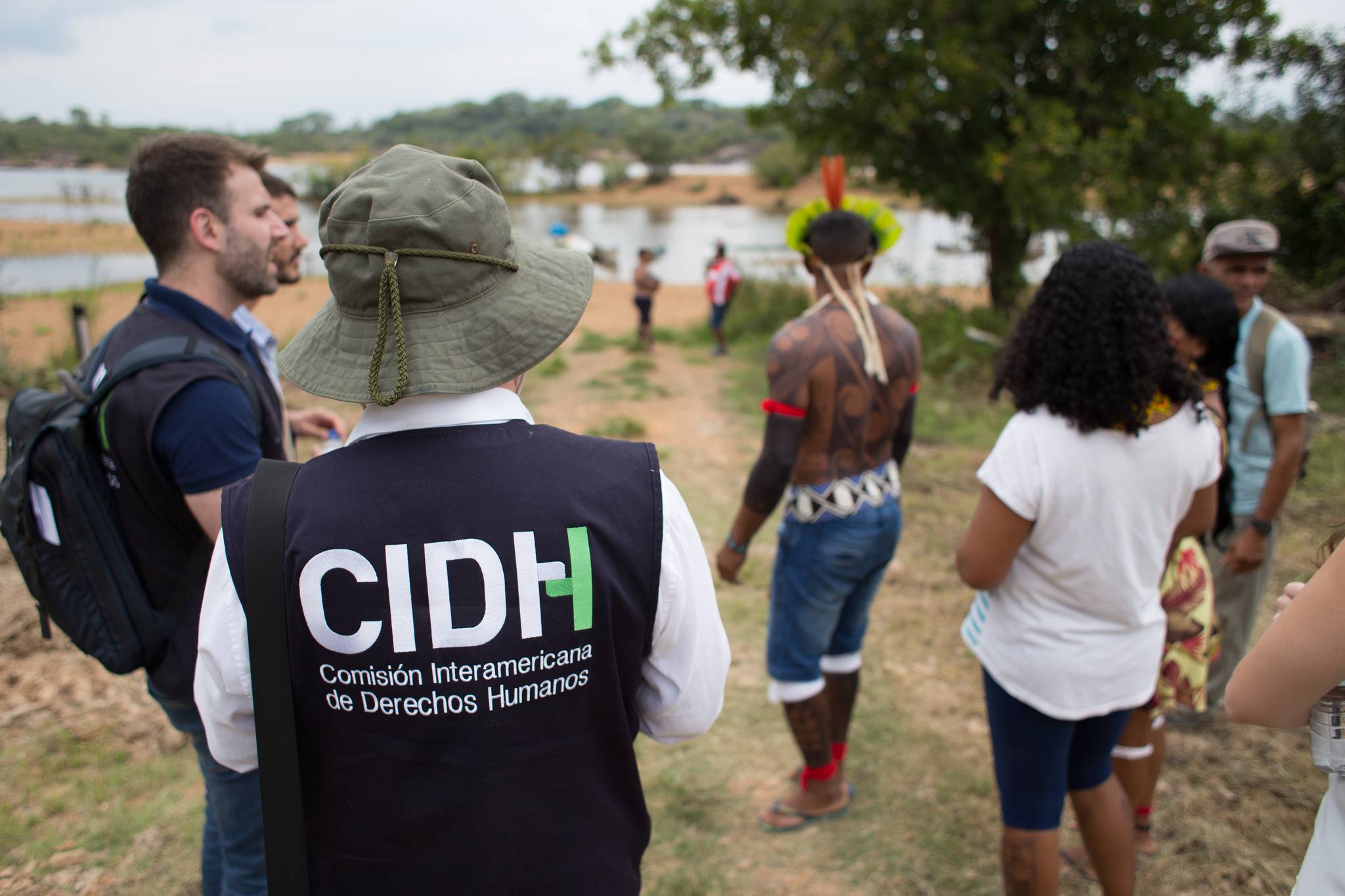Preliminary IACHR report has 71 recommendations for Brazil
The objective of the Commission was to evaluate human rights conditions in the country and to present proposals to strengthen public policies.
 IACHR visits the indigenous territory, Paquisambe - Médio Xingu
IACHR visits the indigenous territory, Paquisambe - Médio Xingu
After a week of on-site visits in Brazil to assess human rights conditions in the country, the IACHR (Inter-American Commission on Human Rights) published a report with its preliminary observations, on Monday 12 November. The Commission’s evaluation covered a number of areas, including: violence in the countryside; the perpetuation of slave labour; migration; human rights defenders; people deprived of freedom and combatting the discourse of hatred.
The Commission held a series of meetings with social movements, public authorities and civil society in order to obtain a diagnosis of rights violations in eight Brazilian states (BA, SP, RJ, MG, PA, MA, RR and MS), as well as the Federal District. The initial perception is that there has been a downturn in the guarantee of rights in a wide variety of areas. Based on this analysis, the IACHR set out 71 recommendations for Brazil. These will also be included in the final report, the publication date of which has not yet been set.
It is 25 years since the IACHR has carried out such a complex visit in Brazil. This year’s inspection included six delegations and the participation of different commissions, under the leadership of President Margarette May Macaulay. “The IACHR visit comes at an important time for ensuring human rights in Brazil. The analysis on violations and recommendations that will be presented by the Commission in its final report, based on information gathered in the field, will serve as guiding parameters for strengthening public policies for the defence of rights.” Said Jefferson Nascimento, Assistant on the Conectas Programme for Development and Socioenvironmental Rights.
“In addition, as the principal body for the promotion and defence of human rights in the Americas, the IACHR has an important role in monitoring whether international commitments made by countries in the region on this matter are being fulfilled and in accompanying cases of serious, systematic violations of the guarantees, that affect vulnerable sectors of society.” Jefferson added. See below some of the recommendations presented by the IACHR:
- Structural and budgetary strengthening of the Programme for the Protection of Human Rights Defenders, guaranteeing the implementation of effective, efficient protection measures;
- Guarantee that the traditional Afro-descendent quilombola people, indigenous people and peasants are able to use and profit from their historically occupied territories, in other words their recognition and denomination as well as boundary demarcation through special procedures, with the participation of the groups involved;
- To ensure suitable, swift and far reaching compensation for all victims of police violence and their families, including financial support, medical and psychological assistance, as well as measures to prevent them from being targeted again;
- Strengthen public policy for the eradication of slave labour, offering material conditions for the Mobile Monitoring Group’s operations and allowing for the regular publication of the register of employees exposed for exploiting slave labour (“black list”);
- Adopt judicial, legislative and administrative measures and others that are needed to reduce overcrowding in prisons and to apply preventative imprisonment in line with the principles of exceptionality, legality, proportionality and necessity;
- Promote the use of alternatives to deprivation of freedom, incorporating the perspective of gender and differential approaches;
- Create a policy of an integrated approach to drugs with re-introduction into society, so that people who have been in prison for the use or possession of drugs, or who have committed minor crimes due to their problematic or dependent use of drugs, are not treated from a repressive, criminalising perspective, but through a public health approach;
- Guarantee the acknowledgment of refugee status for Venezuelan people who are justifiably afraid of persecution should they return to Venezuela, or who believe their lives, safety and personal freedom are in danger due to justified fear of persecution based on race, religion, nationality, social group or political opinions, as well as violent conditions, serious generalised violation of human rights and serious disruption of public order;
- Develop an efficient system of public security, making it a priority to reduce the high rate of murder and violent crime in the country, as well as programmes for the prevention of violence;
- Strengthen mechanisms of formal control (Inspectors, Ombudsmen and Monitoring), able to handle compensation processes transparently and autonomously in order to fight abuse or diversion of power;
- Abstain from adopting policies and measures and sanctioning legal norms that lead to setbacks in the DESCA.


